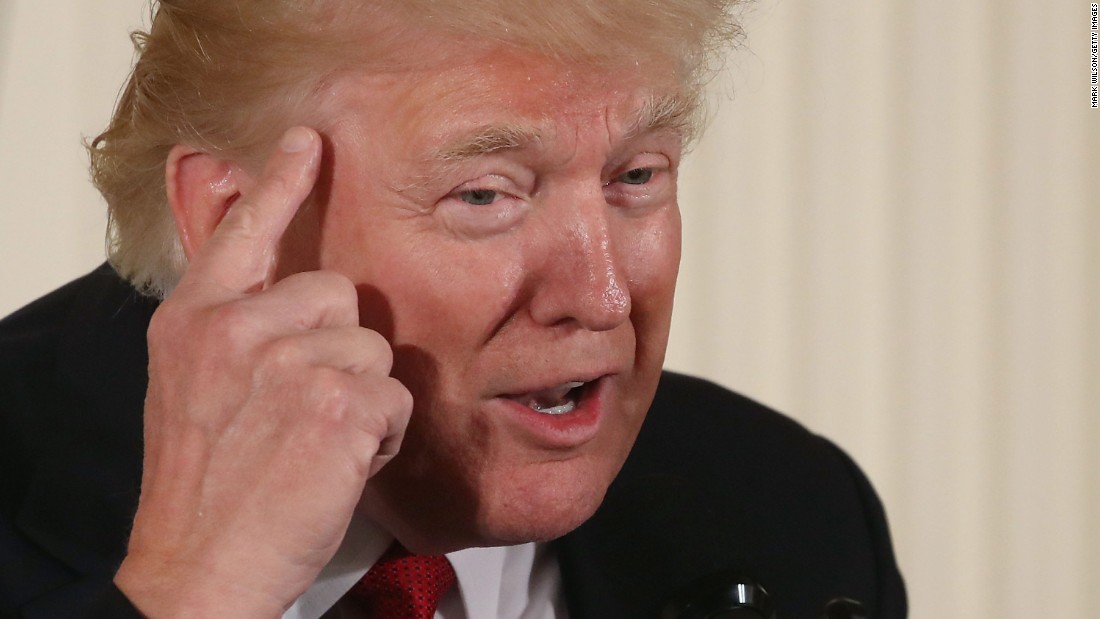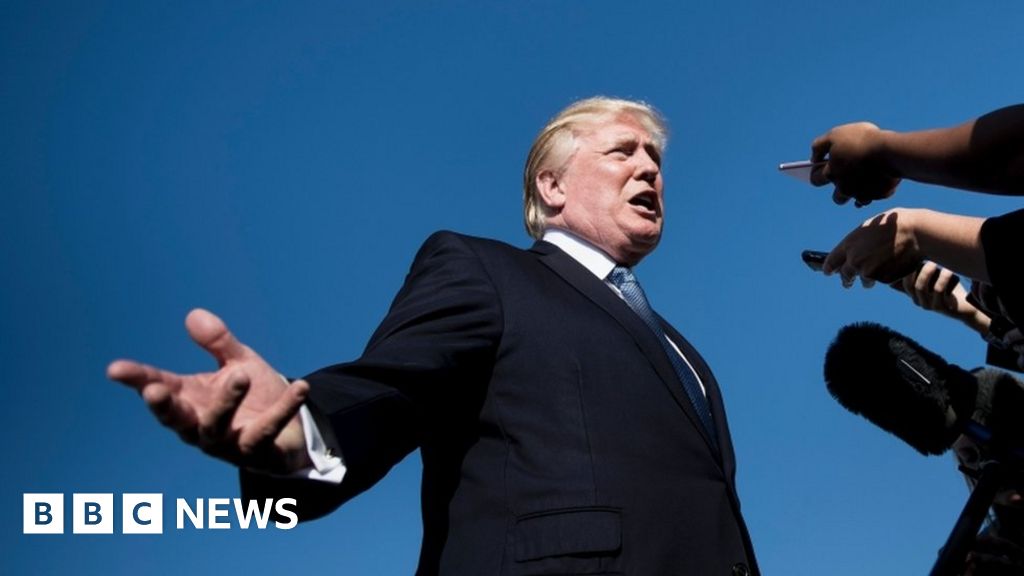Unraveling The Mystery Of Trump's IQ: Facts And Myths
The discussion surrounding Donald Trump's intelligence quotient (IQ) has long been a topic of debate and speculation among both supporters and critics. As a successful businessman, reality television star, and the 45th President of the United States, Trump's cognitive abilities have come under scrutiny in various contexts. Many have posed the question: is his IQ indicative of his capabilities as a leader? In this article, we will explore the complexities of Trump's IQ, examining both the factual basis and the myths that have emerged over the years.
At the heart of the conversation about Trump's IQ is the intersection of perception and reality. While some view him as a genius businessman who successfully navigated the complexities of the real estate industry, others argue that his behavior and decision-making skills raise questions about his intelligence. This dichotomy has fueled discussions about the validity of IQ tests and what they truly measure. In addition, Trump's penchant for controversial statements and actions has led many to wonder if his IQ aligns with his public persona.
As we delve deeper into the concept of Trump's IQ, it is essential to look at the various elements that contribute to intelligence. From emotional intelligence to problem-solving skills, the idea of IQ is multifaceted. This article aims to paint a comprehensive picture of Trump's cognitive abilities, addressing both his accomplishments and the criticisms he has faced. With a closer look at Trump's background and personal details, we will set the stage for a nuanced discussion about his IQ.
What is Donald Trump's Biography?
Donald John Trump was born on June 14, 1946, in Queens, New York City. He is the fourth of five children born to Frederick C. and Mary MacLeod Trump. After graduating from the Wharton School of the University of Pennsylvania with a degree in economics, he joined his father's real estate business. Over the years, Trump expanded the business into a global brand, becoming a prominent figure in real estate, entertainment, and politics.
| Personal Details | Bio Data |
|---|---|
| Full Name | Donald John Trump |
| Date of Birth | June 14, 1946 |
| Place of Birth | Queens, New York City, USA |
| Education | Wharton School of the University of Pennsylvania |
| Profession | Businessman, Television Personality, Politician |
| Political Party | Republican |
| Presidency | 2017 - 2021 |
What Factors Contribute to Trump's IQ Perception?
When discussing Trump's IQ, several factors come into play that shape public perception. These may include:
- Business Success: Trump's achievements in the real estate market and his ability to brand himself have led many to consider him intelligent.
- Media Representation: The way Trump is portrayed in the media can influence opinions about his intelligence, whether positive or negative.
- Public Speaking Skills: His unique speaking style and ability to connect with certain audiences can be viewed as a sign of intelligence.
- Controversial Statements: Trump's often polarizing remarks can lead some to question his cognitive abilities.
Are Trump’s IQ Test Scores Available?
While many public figures have had their IQ scores disclosed, Donald Trump has not publicly released any formal IQ test results. This absence of definitive data has led to speculation and debate over his intelligence. Some claim that Trump's IQ is above average, while others argue that his behavior suggests otherwise. This lack of concrete evidence has made it difficult to assess Trump's IQ accurately.
What Do Experts Say About IQ Testing?
Experts in psychology and education often debate the validity of IQ tests as a measure of intelligence. Some key points include:
- Limitations of Traditional IQ Tests: Critics argue that standard IQ tests do not capture all aspects of intelligence, such as creativity and emotional intelligence.
- Cultural Bias: Some tests may favor certain cultural backgrounds, potentially skewing results.
- Dynamic Nature of Intelligence: Intelligence is not static; individuals can develop and enhance their cognitive abilities over time.
How Does Emotional Intelligence Play a Role?
Emotional intelligence (EI) is a crucial component of overall intelligence that is often overlooked in discussions about IQ. EI encompasses a person's ability to recognize, understand, and manage their emotions and the emotions of others. In Trump's case, his emotional intelligence could be assessed through:
- Social Skills: Trump's ability to connect with his supporters showcases a level of emotional intelligence.
- Self-Regulation: His impulsive behavior may raise questions about his self-regulation capabilities.
- Empathy: Critics often claim that Trump lacks empathy, which is a significant aspect of emotional intelligence.
What Are the Implications of Trump's IQ on His Leadership?
The implications of Trump's perceived IQ on his leadership style are multifaceted. Supporters often argue that his high-stakes business background equips him to make tough decisions. On the other hand, critics contend that his behavior and decision-making process raise concerns about his qualifications to lead. Some potential implications include:
- Decision-Making: A high IQ could indicate strong analytical skills, but impulsiveness may compromise the effectiveness of those decisions.
- Public Image: Perceptions of intelligence can greatly impact a leader's public image and credibility.
- Policy Formulation: Understanding complex issues requires a certain level of intelligence, which may affect the quality of policy decisions.
Can Trump's IQ Be Compared to Other Presidents?
The comparison of Trump's IQ with that of other U.S. Presidents has become a popular topic among enthusiasts and critics alike. Various studies and surveys have attempted to quantify the intelligence of past presidents. However, it is essential to recognize that IQ is not the sole determinant of effective leadership. Factors such as charisma, experience, and political acumen also play significant roles. Some notable comparisons include:
- Abraham Lincoln: Often regarded as one of the greatest presidents, Lincoln's intelligence is celebrated, though exact IQ estimates are unavailable.
- John F. Kennedy: Known for his charisma and strategic thinking, Kennedy's intelligence is also considered above average.
- Barack Obama: With a well-documented academic background, Obama is often cited as one of the most intelligent presidents in recent history.
What Is the Final Verdict on Trump's IQ?
In conclusion, the question of Trump's IQ remains a contentious issue filled with speculation and differing opinions. While there is no formal evidence to support any specific IQ score, the conversation about his intelligence encompasses various dimensions, including emotional intelligence and leadership effectiveness. Ultimately, Trump's cognitive abilities should be viewed within the broader context of his actions and impact on society, rather than relying solely on a numerical score.
As we continue to analyze and debate Trump's IQ, it is crucial to approach the topic with an open mind, recognizing that intelligence is a complex and multifaceted trait that cannot be easily quantified. Whether one views Trump as a genius or questions his cognitive abilities, the dialogue surrounding his intelligence is likely to persist in the years to come.



ncG1vNJzZmixn6PAtr7IZqWeq6RjsLC5jq2pnqaUnruohY6tqa6loKh6qr2NoaumpA%3D%3D